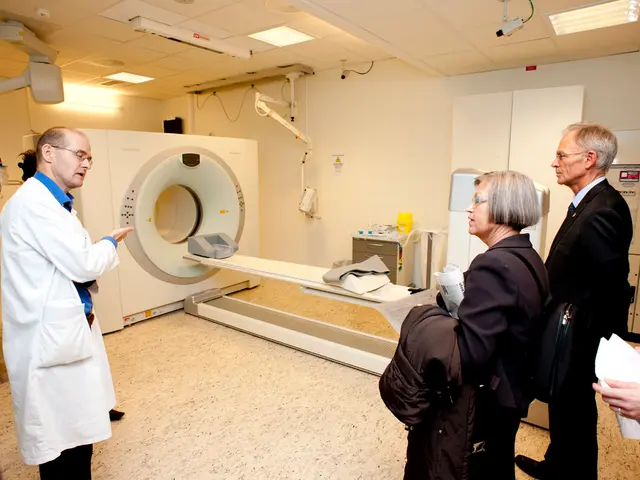A Comprehensive Strategy: Empowering Protection from Violence for Mentally Ill Individuals
Health officials advocate for strengthened safeguards against violent acts by those with mental health issues.
Health ministers from various state and federal governments are seeking to enhance protection against violent acts by individuals with mental health issues through a revamped approach centered on seamless care structures and cohesion. A comprehensive, community-driven strategy is essential, they stressed at their annual conference, emphasizing adequate funding for public healthcare services.
Following a series of violent incidents, such as the tragic event at Hamburg's main railway station where a woman, apparently mentally ill and homeless, injured 18 people with a knife, the need for "binding community psychiatric networks" has emerged. Integrating mental health professionals, law enforcement, social services, and family members under these networks helps prevent the vicious cycle of repeated instances and treatment discontinuities. Existing cooperation between health and security agencies is deemed too insufficient.
Thuringia's health minister, Katharina Schenk (SPD), has lauded the unity in reinforcing the public healthcare system, which encompasses health departments and more. This central focus is a primary concern addressed in the conference resolution, where the federal and state governments agreed to jointly address financial questions, digitization, and personnel recruitment of the public health service.
The conference also addressed the struggle against substance abuse and the consumption of hazardous substances like laughing gas. After consensus was reached on the ban of selling laughing gas for recreational purposes, Federal health minister Nina Warken (CDU) vowed to incorporate this and other points into the federal legislation.
Empathy and Prevention: Key Action Points
- Community-oriented Psychiatric Teams: Establish local psychiatric networks that bring together mental health professionals, law enforcement, social services, and family members. This coordinated effort ensures quick crisis management, continuous support, and holistic care approaches.
- Trained First Responders: Equip police, paramedics, and community workers with de-escalation techniques and mental health first aid know-how to effectively manage crises and divert individuals from the judicial system, funneling them into care instead.
- Integrated Services: Develop services that treat mental illnesses and substance use disorders concurrently as these conditions often co-occur and exacerbate one another.
- Harm Reduction Programs: Implement needle exchange programs, supervised consumption sites, and opioid substitution therapy to minimize harm and encourage engagement with healthcare services.
- Social Factors Support: Address underlying factors such as poverty, housing instability, and unemployment that contribute to both mental illness and substance abuse.
- Peer Support and Outreach: Foster community-based peer networks and culturally sensitive outreach initiatives to reduce stigma and encourage help-seeking.
- Public Awareness and Education Campaigns: Increase public understanding about mental health, substance use, and violence prevention, shifting public perceptions and behavior.
- Inclusive, Culturally Competent Care: Train providers to recognize systemic biases and consider cultural context, ensuring equitable access to mental health and addiction services for all populations.
- Advocacy and Policy Change: Engage clinicians, community leaders, and mental health advocates in pushing for legislation that supports equitable access to mental health and addiction services.
Financing a Brighter Future: The Real Cost of Change
- Multi-sectoral Funding Streams: Secure funding from federal, state, and local governments, public health agencies, foundations, nonprofits, and the private sector for program development, staff training, and service delivery.
- Long-term Funding Commitments: Advocate for multi-year funding pledges to ensure program sustainability, rather than short-term or pilot-only initiatives.
- Research and Evaluation: Allocate funds for continuous monitoring and evaluation to demonstrate program effectiveness and guide continuous improvement.
- In an effort to improve the employment prospects of individuals with mental health issues, the employment policy should be a key focus of the comprehensive strategy, aligning with the empathy and prevention initiatives.
- Scientific research and evidence-based approaches can be incorporated into the mental health policy and legislation to inform the development of effective health-and-wellness programs, indexing them under policy-and-legislation and general-news discussions.
- As mental health is closely intertwined with both physical and emotional well-being, integrating mental health considerations into existing health policies and promoting mental health awareness within the community are essential for fostering a holistic approach to overall wellness.







